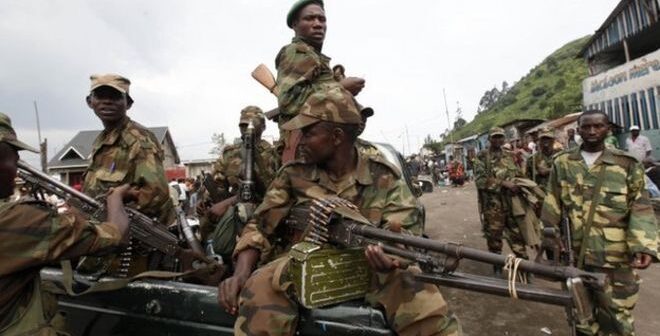
Rwanda denies supporting M23 rebel group in Eastern DRC
Published on March 31, 2022 at 3:32 PM by Face of Malawi
Rwandan government denies supporting M23 rebels in eastern Democratic Republic of Congo.
Rwandan’s deputy government spokesman Alain Mukuralinda denies accusations by the military of the Democratic Republic of the Congo of Kigali’s support for the revived M23 rebel movement in the east. He also denies that two men presented to journalists as Rwandan soldiers arrested during attacks on Congolese army bases were from the country.
Defeated in 2013 by the Congolese army, the M23 has been in the news again since November, when it was accused of attacking several military positions. In particular, the movement blames the Kinshasa authorities for not having respected commitments made for the demobilization and reintegration of its fighters.
“We categorically refute the baseless accusations” of the Congolese army, replied François Habitegeko, Governor of the Rwandan Western Province, in a statement on Tuesday. The Rwandan army “is in no way involved in warlike activities” in the DRC, he added.
To back up his accusations, Congolese General Ekenge said that two Rwandan soldiers were arrested during Monday’s attacks and specified their identities: Warrant Officer Jean-Pierre Habyarimana and Private John Uwajeneza Muhindi, alias Zaje, of the 65th Battalion of the 402nd RDF Brigade.
The two alleged soldiers, dressed in civilian clothes, were standing near him and were shown on Congolese television.
UPDATE: FARDC says the two commandos from Rwanda defense forces (RDF) arrested with the M23 suspected rebels in DRC are; Habyarimana Jean and pt Uwajeneza Muhindi John alias Zaje. #NBSUpdates pic.twitter.com/TOyEWsHUi7
— Julius Nabimanya (@NabimanyaJuliu) March 31, 2022
Again, Mr. Habitegeko “disputed these false allegations.” According to him, the names of these two men had been mentioned by the Congolese side during a meeting on February 25 in Kigali of a joint intelligence mechanism.
The two men were arrested “more than a month ago,” the Rwandan governor said, adding that the Rwandan army did not have any soldiers with the names mentioned.
In a video message, Willy Ngoma, spokesman for the M23, also affirmed that the movement was “Congolese and did not benefit from any assistance, either near or far, from any neighboring country.”
Since the massive arrival in the DRC of Rwandan Hutus accused of massacring Tutsis during the 1994 genocide, Rwanda has been regularly accused by Kinshasa of incursions into Congo and of supporting armed groups in the east.
Relations eased with the accession to power in early 2019 of Felix Tshisekedi, who has met several times with his Rwandan counterpart Paul Kagame. But the renewed activity of the M23 has revived suspicion.


